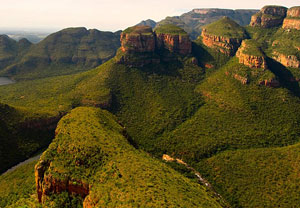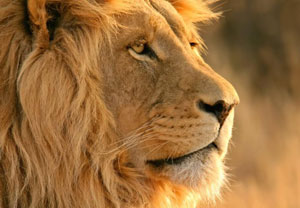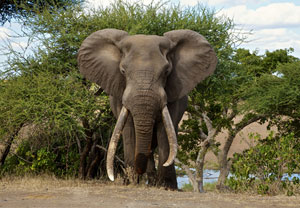Mpumalanga "THE PLACE WHERE THE SUN RISES" lies on the north-east of South Africa, and is home to the Kruger National Park. People are drawn to Mpumalanga by the magnificent scenery, by the fauna and flora and by the saga of the 1870's gold rush era and a wealth of fascinating tribal legends. Mountains, panoramic passes, valleys, rivers, waterfalls and forests characterise the landscape. This is also Big Game Country, the setting for dozens of sanctuaries teeming with wildlife and birds.
The entire Mpumalanga area offers exceptional opportunities for bird-watching, hiking, horse-riding, fishing and loads of game viewing. Mpumalanga offers something for everyone.
Language:
English is commonly used throughout Mpumalanga. The dominant indigenous language in the region is SiSwati. A few SiSwati words you might encounter or want to use are:
Sawubona - Hello
Sala Kahle - Good bye
Angiva - I don't understand
Ngiyabonga - Thank you
How to get there:
By car, the Paul Kruger Gate is approximately 460 - 470km from Johannesburg. By plane, the Kruger Mpumalanga International Airport (KMIA/MQP) at Nelspruit receives flights from OR Tambo International Airport in Johannesburg, Durban, Cape Town, Livingstone and Vilanculos. It is the largest airport, with the most facilities. The Paul Kruger Gate is approximately 82km from KMIA.
Weather:
The Kruger National Park is a generally dry and hot area, regardless of summer or winter. The South African summer (September - April) in the KNP is hot and sunny with occasional thunder showers and temperate in the range of 18 - 40 °C. The winter (May - August) is warm and dry with temperatures ranging from 8 - 25 °C
Malaria:
The Kruger National Park lies within the malaria belt but the probabilities of contracting the disease are low, even during the rainy summer months (December to April) when mosquito numbers are at their highest. However, you're strongly advised to consult a medical practitioner before you visit the Kruger (especially if you are taking children) and to take necessary precautions to avoid being bitten while you're there. We recommend you carry an insect repellent (e.g. Tabard) with you, these are readily available at supermarkets and pharmacies.
Medical Insurance:
If your health insurance plan does not provide coverage for South Africa, we strongly recommend supplemental medical travel insurance and medical evacuation plans. You are responsible for all medical costs - healthcare providers including ambulances require payment in cash before services are performed.
(Click on the photos to enlarge)




